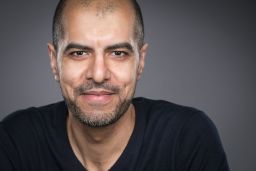Story highlights
CNN and outside commentators weigh in on winners and losers in the CNN GOP Debate in Las Vegas
Donald Trump announced he won't make an independent bid; Cruz, Rubio throw sparks; Bush finally fights back against Trump
Republican candidates for president took part in their party’s last debate of the year Tuesday night on CNN. Here’s a range of views from CNN commentators and outside observers. The opinions expressed in these commentaries are those of the authors.
David Gergen: Trump makes electric announcement

As soon as the nine Republican candidates came on stage in Vegas last night – six in red ties, the seventh in a red dress – you suspected that it might be a repetitive evening.
And so it was: For the most part, the candidates repeated what they have said in other forums, they had familiar disagreements, and their closing statements echoed old themes. No clear winner emerged, and judging from Twitter, there was less audience engagement.
But there were two electric elements:
One was the nastiness of the exchanges between Donald Trump and Jeb Bush and then again, between Marco Rubio and Ted Cruz. It is rare to see such deep personal disdain as between Bush and Trump. For the first time, Bush went toe-to-toe and succeeded. I doubt it will change the trajectory of the campaign but Bush supporters could certainly take heart.
The animosity between Cruz and Rubio seems more political than personal: they are jockeying against each other to be the lead alternative to Trump. In my book, Cruz was the better of the two, as Rubio for the first time seemed flustered, especially on immigration.
The other electrical element came five minutes before the close when Trump made his most emphatic promise to date that he would not bolt to run as an independent. Many don’t believe him, and it is easy for him to be so conciliatory when national polls show him 20-plus points ahead.
But after taking so firm a pledge in front of millions, I just don’t think he can or will reverse course. Indeed, that pledge could well be remembered as the highlight of the debate.
David Gergen is a senior political analyst for CNN and has been a White House adviser to four presidents. A graduate of Harvard Law School, he is a professor of public service and co-director of the Center for Public Leadership at the Harvard Kennedy School. Follow him on Twitter: @david_gergen.
S.E. Cupp: Cruz, Rubio finally have the debate we need

Tonight’s focus on foreign policy was a good platform for some candidates, and a very trying one for others.
Ben Carson was utterly incoherent. It’s time for his supporters to admit that as much as they like and admire him, he just isn’t prepared to be president and turn their attention to another candidate.
Donald Trump was typically imprecise. He struggled to explain what he means by “closing the Internet,” and even earned a number of boos from the audience for attacking Jeb Bush. Trump’s supporters seem to prize attitude over precision so, like past debate performances, I don’t expect this one to change his standings.
Ted Cruz was in the spotlight for the first time, and he had a mixed performance.
On the long-awaited battle with Marco Rubio over their competing approaches to foreign policy and national security, Marco Rubio consistently won the points. This just isn’t the climate or the constituency in which Cruz’s nuanced positions can land. The candidates with more muscular positions to “keep us safe” are going to win the day. On immigration, however, Cruz had the upper hand.
The Cruz-Rubio matchup was the race many of us were anticipating before Trump got in, and the more we get to see them make their case, the more it feels like the debate we should be having.
S.E. Cupp is the author of “Losing Our Religion: The Liberal Media’s Attack on Christianity,” co-author of “Why You’re Wrong About the Right” and a columnist at the New York Daily News.
Errol Louis: The governors bring it, Trump coasts

There was a split victory in the final Republican debate of 2015, with the biggest win going to the past and present governors running for president, Chris Christie of New Jersey, Jeb Bush of Florida and John Kasich of Ohio.
The debate’s emphasis on national security tilted the discussion in favor of the candidates with executive government experience – an advantage Christie exploited by repeatedly referring to his background as a federal prosecutor and by pointedly dismissing an exchange between Sens. Cruz, Rubio and Paul about past votes on immigration reform.
“Nobody in America cares about that,” Christie said bluntly.
Kasich sounded a similar note, invoking the words of his young daughter, who hates the anger, shouting and insults that often crowd out debate.
Bush turned his best debate performance so far this season, directly attacking frontrunner Donald Trump: “Donald is great at the one-liners. But he’s a chaos candidate. He’d be a chaos president,” Bush said. At another point he told Trump that “You’re not going to be able to insult your way to the presidency. That’s not going to happen.”
The other big winner was Sen. Ted Cruz, who is positioning himself as a favorite among religious conservatives in the Republican base. While forcefully criticizing Rubio’s past votes on immigration, Cruz cited a popular right-wing radio host, Mark Levin, who will almost certainly play the shoutout to his large national audience tomorrow.
And frontrunner Donald Trump can count the debate as a win, inasmuch as he did nothing to endanger his lead position and did not lash out at other candidates as much as in past debates – and he made news to boot, by pledging not to run as a third-party candidate.
That will be good enough for Trump’s supporters, who will likely overlook a gaffe Trump committed: when asked to discuss how he’d manage the nation’s nuclear triad – the military’s ability to deliver nuclear weapons by land, sea and air-based missiles – it was painfully obvious that Trump had no idea what the phrase means.
The other candidates continued to struggle. Carson and Fiorina, who lack government experience, seemed out of place in a discussion about border security, international diplomacy and other issues on which they have no history. Sen. Paul’s libertarian position on avoiding the reckless use of military force put him at odds with the pro-war sentiment of the other candidates and the Republican base.
At one point, after Christie vowed to ramp up military action in the Middle East, Paul said “I think if you’re in favor of World War III, you have your candidate.”
The fact that most of the nine candidates on stage had strong performances is a testament to the way debates make candidates better. It also means the large Republican field won’t be shrinking anytime soon.
Errol Louis is the host of “Inside City Hall,” a nightly political show on NY1, a New York all-news channel.
Constanze Stelzenmueller: Not a reassuring night for Europeans

So, what did this European learn from tonight’s Republican presidential candidate debate?
1. The debates seem to be a cunning device for winnowing out candidates lacking in stamina. In the “no chance of winning and living on another planet” category are Ben Carson and Rand Paul. In the “no chance and looking like a moderate Republican that a European would recognize as a throwback to say, 1990” category there’s John Kasich. In the “no chance, but still fighting hard” category are Carly Fiorina, Chris Christie and Jeb Bush. And then there’s the “no chance of winning but actually seemed to be trying to restrain himself (probably the strangest sight tonight)”: Donald Trump.
So that leaves us with Ted Cruz and Marco Rubio. The latter is more reasonable (and also stands out for not suggesting violating the Geneva Conventions and deliberately killing innocent bystanders). The former is simply more dangerous.
One debate moment from seven different angles
2. The best grasp of foreign policy in Tuesday night’s debate (which is of deep interest for European allies) was demonstrated by Bush and Rubio. Meanwhile, I only noticed Kasich mention Europe (I know this election isn’t about us, but it’s reassuring for an ally when we do get a mention).
3. Cruz and Rubio appear to have accurately assessed themselves as the other’s greatest danger. I look forward to future duels and already enjoyed the line from Cruz about the difference between a fireman and an arsonist.
4. Meanwhile, as this debate is going on, the Transatlantic Trade and Investment Partnership, a crucial transatlantic free trade treaty, is tanking. Europe and the U.S. seem determined to slap visa restrictions on each other. And in the Middle East and Eastern Europe, there is every reason to fear an unraveling of regional orders and an escalation of violence. Who profits? Not America. And not Europe.
5. Oh, and I saw a commercial informing me that the fourth season of “House of Cards” is coming. Many Europeans sort of assume that the show is a reflection of U.S. politics. Like they used to think the West Wing was. Think about it…
On the whole, not a reassuring night for this particular European.
Constanze Stelzenmueller is the Robert Bosch Senior Fellow at Brookings’ Center for the United States and Europe. She is also the former director of the German Marshall Fund’s Berlin office and was an editor at the German weekly DIE ZEIT.
Haroon Moghul: Bush a (relative) voice of reason on Muslims

When I heard the Republican debate would focus on national security, I anticipated lots of bluster and dangerous anti-Muslim, anti-immigrant fear-mongering. In that I was not disappointed. Though Sen. Rand Paul made a case for civil liberties, he stood nearly alone.
Jeb Bush stressed the importance of good relations with Muslim countries for defeating ISIS, but Muslims matter beyond where we stand on someone else’s foreign policy. As a national security debate, one might have expected mention of gun violence; there was none, no mention of climate change (except to dismiss it), and no consideration for how our country could possibly pay for the massive surveillance state and endless war the candidates believe are so necessary (except to cut taxes, I guess).
Neither was there any mention of domestic terrorism, of surging white supremacist rhetoric and violence, of police brutality, of hate crimes against Sikhs, Latinos, Muslims and Jews, of a shooting at a Planned Parenthood office. Apparently only one kind of terrorism matters: The kind that doesn’t require the GOP to challenge its base. That’s called political correctness, and it’s the reason we are less safe today.
Winner: By emphasizing the need to maintain respectful relations with the Muslim world, Jeb Bush reminded us of the mature, realistic, electable Republicans of years before.
Loser: Terrorism is the use of violence against civilians for political purposes, which is exactly what Donald Trump called for.
Haroon Moghul is a fellow at the Institute for Social Policy and Understanding. He is an author, essayist and public speaker. Follow him @hsmoghul.
Maria Cardona: Candidates play ‘Quien es mas macho?’

Tonight’s Republican debate was a contest reminiscent of a “Saturday Night Live” skit entitled “Quien es mas macho?” In Spanish that means who is tougher and more manly. In the case of the presidency, that would mean a leader focused on solutions, not divisions, someone who appeals to the better angels of our nature and challenges us to be the best of ourselves, not goad us to be the worst of ourselves. We didn’t see that leader on stage tonight.
But we did see a debate that did little to change the course of the Republican primary process. Donald Trump did well enough, deflecting, doubling down, ridiculing Jeb Bush with good one-liners. He even committed to run as a Republican, speaking deferentially about Republican leadership…while continuing to be a thorn in their side. It was a deft move. He will continue to maintain his massive lead over the rest of the field nationally and in most states.

Marco Rubio had a terrific debate and will move up in the polls. Ted Cruz did well as he and Rubio mixed it up during a robust back and forth about surveillance vs. privacy, isolationism vs. hawkishness, and on immigration reform. Ironically, while they gave the GOP mainstream what it was looking for, these two Latino candidates have alienated Latinos with extreme positions on immigration, minimum wage, health care and other key economic issues important to this rising minority.
Jeb Bush perhaps had his most lively debate to date, going after Trump like a man who had nothing to lose - because he has already lost. He had a good one-liner saying Trump was the “chaos” candidate. But the GOP base has made up its mind about Jeb and he does not measure up to what they want and need this cycle. Jeb is right that Trump cannot insult his way to the presidency, but he may well be able to insult his way to the GOP nomination.
Ben Carson proved why he is free-falling in the polls. Every time he spoke, it was tough to decipher what he was talking about and when he wasn’t speaking, he was forgettable.
Carly Fiorina showed once again that she belonged on that stage, but as much as she tried, she didn’t give folks reason enough to support her over her colleagues.
Chris Christie clawed his way back to the mainstage and demonstrated the grit that his supporters love. His momentum is coming at the right time and he can be a real player in New Hampshire. It will be difficult for him to be a player in any of the other key early states however, or in any other region in the country. His rise will be ephemeral.
In the end, it was several candidates trying to outgun one another, trying to prove they are the toughest, meanest, most bad-ass leaders that would destroy ISIS in their tracks, and not let in any Muslim terrorists masquerading as refugees.
The GOP nominee will have a tough time appealing beyond the base to mainstream America and all of its diverse communities, and ultimately winning the White House.
Winner: Rubio, but Trump by default because this won’t change his lead in polls.
Loser: Carson, but Bush by default because even though he had his best night yet it won’t make a difference
Maria Cardona is a political commentator for CNN, a Democratic strategist and principal at the Dewey Square Group. She is a former senior adviser to Hillary Clinton and was communications director for the Democratic National Committee. She also is a former communications director of the Immigration and Naturalization Service.
Koya Ozeki: Tough talk understandable

Each of the Republican presidential candidates tried hard in Tuesday’s debate to present themselves as a strong leader, one able to defend America against future extremist attacks. This is completely understandable given the widespread fear and sense of vulnerability Americans feel in the wake of the apparent terrorist attack in San Bernardino.
As a Japanese, I can understand this idea of public insecurity – against the backdrop of China’s growing military power, the Japanese public has grown gradually more supportive of a tougher defense posture and closer security cooperation with the United States. Many of us, too, want to see a U.S. president who is tough on security.
That said, the type of extremist threat that many Americans seem particularly worried about right now is that of homegrown terrorism. Yet the truth is that this threat will not disappear even if ISIS is defeated militarily, just as it did not disappear after the United States defeated the extremists in Afghanistan.
Unfortunately for those focused on the toughest response possible from a presidential candidate, it seems extremely difficult to detect a self-radicalized, potential terrorist before he or she acts, and it is equally difficult to prevent that kind of terror attack by solely military means.
It has long been pointed out that the biggest factor that drives an ordinary citizen to radicalize is a sense of alienation. An individual isolated by society is an easy target for these extremist groups. So it was disappointing that no one in Tuesday’s debate talked about how they would try to create a society where Muslim American youth would not be subjected to discrimination and could play a constructive role in society. (Of course, my own country has not always been successful in dealing with disillusioned young people – in 1995, a group of young men and women who belonged to a cult attacked the Tokyo subway system with sarin nerve gas, killing 13 and injuring many more).
One final thing I can say with confidence, though, is that it seems very clearly to be a bad idea to allow dangerous people such easy access to deadly weapons. Unfortunately, we didn’t hear anything about how to prevent that in Tuesday’s debate, something that continues to puzzle those of us watching American politics.
Koya Ozeki is the Washington correspondent for the Yomiuri Shimbun, Japan’s largest newspaper.
Philippe Le Corre: Lots of bluster, but not solutions

Tonight’s Republican debate attempted to get the audience interested in international affairs. It is probably not the easiest topic on a Tuesday night, even after the attacks of Paris. Americans care about their daily life, health, education – what happens in the Middle East was not really a primary concern – at least until San Bernardino, which of course was a direct attack on the American way of life.
In this context, the nine Republican candidates seem to agree on only about two things: the Obama administration’s foreign policy in the Middle East is wrong, and a GOP administration should be tougher on terrorism and ISIS. Their solutions are less than convincing.
No one actually proposed a solution in Syria – there was only talk of “destroying ISIS” or “getting rid of Assad” or even punching Putin. This isn’t leadership. Meanwhile, from a European point of view, it is surprising to hear so little about America’s allies, those who are currently conducting strikes in Syria (mainly France and Britain, with support from Germany).
Overall, the national security issues kept coming down to domestic politics: immigration (Marco Rubio and Ted Cruz argued about who is the toughest on illegal immigrants) and ensuring the security of the American people.
Fair enough, but besides preventing Syrian refugees from coming to the United States, I heard few ideas for a long-term solution.
Some candidates were certainly more convincing than others, and at least seemed to have the stature of a potential president (Cruz, Rubio, Jeb Bush). Donald Trump for his part toned down some of his rhetoric and seems to be trying to be more presidential, but it’s not working as far as foreign affairs goes. Meanwhile, several candidates tried to play the macho politician (and Carly Fiorina referred to “Iron Lady” Margaret Thatcher), but only a handful of those on stage appeared credible when talking about foreign policy.
Most interesting? Despite so many extreme comments over the past few weeks, everyone seems to become more moderate during these debates. So I get the feeling that the name of the game tonight was mainly about “appearing presidential” on foreign policy.
That said, the 2016 election will not be won on foreign policy, no matter what happens in the Middle East.
Philippe Le Corre is a visiting fellow in the Center on the United States and Europe at Brookings. He was previously an adjunct lecturer at Sciences Po Paris and a research fellow at the Institut de relations internationales et stratégiques.
William Howell: Rubio and Cruz throw sparks

In a big field of GOP candidates, Marco Rubio is no longer content to just be a fresh face, full of smarts. Repeatedly, he took Ted Cruz to task for being weak on defense. He fended off Rand Paul’s jabs at his immigration record. Iowa is around the bend, and Rubio is starting to press.
Jeb Bush, meanwhile, lands a punch! Donald, you’re a “chaos candidate,” he said. And Trump’s jaw slackened. But only briefly, before he hit back: Don’t you know, Jeb, that you’re a loser in this campaign. I’m the big show, Trump thumped–even as he showed signs of bruising.
Still, this was the most substantive Republican debate yet. Plenty of commentary ended with a kick in the shins for Barack Obama and Hillary Clinton. But the candidates also staked out well-defined positions and spoke with reasonable clarity (inflected with bluster, to be sure) about security threats at home and abroad.
Winners: Rubio and Ted Cruz. The intellectual center of gravity now sits between these two conservatives. And they both know it, which explains why we’re starting to see sparks between them.
Loser: Trump. His campaign escapades may have brought him to new heights in the polls. But on a debate stage, where the conversation turns to urgent foreign policy challenges, he still comes off as every bit the blowhard bully.
Most improved: Bush. For at least the first 90 minutes, he answered questions with some tempo, offered substantive responses to the questions posed and discovered his debate legs. But is it too late?
William Howell is the Sydney Stein professor in American politics at the University of Chicago.
Tara Setmayer: It just got more difficult for Rubio

It took five debates, but it finally happened. Sen. Marco Rubio was forced to directly address his position on immigration head on. He took incoming from both senators Cruz and Paul on his decision to partner with Democrats on an ill-fated comprehensive immigration reform bill in 2013 that included a pathway to citizenship for illegal immigrants. Rubio’s involvement with the so-called “Gang of 8” lawmakers who hammered out this bill has haunted him since and remains his Achilles heel with many conservatives.
Rubio has tried repeatedly to smooth things over with the GOP base by admitting his mistake and taking a tougher stance on securing the border first. And despite Rubio’s national security hardline and pragmatic approach on immigration, conservatives remain skeptical of him. One of the biggest betrayals for the base was the establishment’s reluctance to fight back against Obama’s immigration executive actions and the continued push for legalization.
Unfortunately for Rubio, he’s lumped in as a willing accomplice. Cruz zeroed in on that distrust during the debate when he called out Rubio for “standing with Obama,” supporting amnesty while he (Cruz) was “fighting against it.”
Cruz emphasized that “border security is national security.” That’s a message that strongly connects with the GOP base and damages Rubio. Rubio’s approach may resonate with moderates and the general electorate, as evidenced by recent CNN polling showing both Trump and Cruz losing to Hillary Clinton but not Rubio. However, Rubio has to make it out of the GOP primary first and it just got more difficult for him.
Tara Setmayer is former communications director for Rep. Dana Rohrabacher, R-California, and a CNN political commentator. Follow her on Twitter @tarasetmayer.
Julian Zelizer: Candidates show a GOP divided

During tonight’s debate, heavily focused on national security, it became clear that the recent terrorist attacks in Paris and San Bernardino have re-opened significant divisions that existed toward the end of President George W. Bush’s term. Until recently, these tensions had been muted while Republicans focused on their opposition to President Obama and his policies.
Now Republicans are fighting among themselves once again: How to balance the needs of surveillance and civil liberties? When is it legitimate to use military force when substantial civilian casualties are likely? How can Republicans support stringent budget cuts while also calling for expansive military operations abroad? Should the U.S. support dictatorships or always pursue democratic values (being Woodrow Wilson democracy promoters, as Sen. Ted Cruz said at one point in the evening)?
Each candidate found different levels of success in tackling this issue. Gov. Chris Christie, for example, saw an opening to boast of his record as a chief executive in a state where the threat of terrorism loomed large and to tout his experience as U.S. Attorney – and take shots at Congress.
Combining his energetic delivery style with a strong grasp of policy, Rubio took aim at President Obama’s strategy as well as the record of Republican opponents like Cruz who he said have been supporting programs (like budget cuts) that weaken the military. Rubio, as well as Rand Paul, raised some tough questions about how serious Donald Trump’s ideas actually are – especially when he has called for actions that would clearly violate international law or rest on promises, like building a massive wall around the U.S., that are not feasible.
Once again, Jeb Bush seemed to fade from the stage after the opening comments. While he was able to take a few shots at Trump, overall he was not very effective. He did not find the time to outline his vision on national security policy or to give voters a sense of why he would be the superior candidate to handle these issues.
The debate over national security will continue and tonight’s debate showed clearly that even though all Republicans don’t like President Obama, they face significant divisions among themselves.
Winner: Marco Rubio
Loser: Jeb Bush
Julian Zelizer is a professor of history and public affairs at Princeton University and a New America fellow. He is the author of “Jimmy Carter” and “The Fierce Urgency of Now: Lyndon Johnson, Congress, and the Battle for the Great Society.” The opinions expressed in this commentary are solely those of the author.
Christian Whiton: Cruz’s music to conservatives ears

The conventional wisdom going into Tuesday’s debate was that sparks would fly between Donald Trump and Ted Cruz. Instead, the story turned out to be the competition between Cruz and Marco Rubio for the soul of Republican foreign policy.
Now it’s on between the neoconservatives and everyone else.
Cruz’s focus on defeating ISIS and other jihadists recalled Ronald Reagan’s singular focus on defeating communism. Cruz was more effective than Rubio in zeroing in on the Democrats’ refusal to identify “radical Islamic terrorism” as the chief security threat to America. Cruz’s admonitions that “We will not be prisoners to political correctness” and “border security is national security” is music to the ears of conservatives.
The big fight early in the debate was over the National Security Agency’s former bulk collection of data on the communications of millions of Americans – something a federal appeals court said was illegal last May.
Cruz ably defended his vote to have the data stored by telecom companies instead of the NSA. He also criticized neoconservatives, who increasingly see Rubio as their ticket back from the political wilderness. Cruz spurned the neoconservative idea of a “safe zone” in Syria – basically a no-fly-zone on the ground that involves starting a land war without a plan for victory or exit.
Carly Fiorina once again did very well. In the debate over NSA use of personal data, she pointed out that the bigger issue was the government’s failure to screen visa applicants who expressed jihadist sentiment in social media. Her call to bring back the “warrior class” followed by a list of excellent flag officers was impressive. However, without a large campaign organization or Trump-like shock factor to sustain her between debates, her poll numbers and fundraising are again likely to ebb after a brief post-debate bump. If so, Carly is well positioned to be the GOP’s choice for vice president or a transformational secretary of state.
Rand Paul did a proficient and confident job of defining non-interventionist foreign policy – which some of us believe is basically isolationist. You can take it or leave it.
Rubio was tarred repeatedly with his past support for amnesty for illegal immigrants and cooperation with Democratic Sen. Charles Schumer on the topic. A key concern about Rubio among Republican activists and voters is aesthetic: he looks awfully young and his earnestness and policy show-offs means some find him insufferable. (His first-communion haircut doesn’t help either.) The debate probably only reinforced these perceptions.
Also problematic for Rubio was that Chris Christie did a decent job. Christie has been enjoying a resurgence, especially in polls for the New Hampshire primary. Rubio is still most likely to be the choice of the Republican establishment amid the ongoing failure of Jeb Bush to get traction. But Christie’s boomlet complicates that inheritance, especially to the extent the Republican establishment is hesitant about Rubio’s neoconservatism or the perception his foreign policy would amount to a third term of George W. Bush.
The debate offered few chances for Trump to go war with the media – a great place for any Republican to be – and when he tried to attack CNN, he was sidelined by conservative radio host Hugh Hewitt correcting a factual misstatement.
Ultimately, Trump did little to alter the trajectory of his candidacy in a race he still leads. But given Cruz’s solid performance and ascendancy in recent polls in first-voting Iowa, he is likely to be the conservative challenger that takes on an establishment represented by Rubio and a neoconservative foreign policy.
Christian Whiton is a former deputy special envoy for human rights in North Korea for the George W. Bush administration. He is president of the Hamilton Foundation, a principal with DC Advisory, a public policy consultancy and the author of “Smart Power: Between Diplomacy and War.”
Camelia Entekhabifard: Candidates don’t get Iran

Iran and its nuclear program dominated much of the discussion in presidential candidate debates in 2012. Should the U.S. grapple with Iran, bomb Iran or make a deal? That discussion was one of the hottest topics of foreign policy discussion four years ago. Now, in this year’s Republican presidential debates, Iran is once again a key issue as the nuclear deal is questioned by the candidates.
On Tuesday night, during a discussion on radical Islamic terrorism, Iran was frequently mentioned. Former New York Governor George Pataki, in the first debate, called the Iran deal “a disaster,” while in the main debate, Donald Trump called the nuclear deal “disgusting” and labeled Iran “a terrorist nation.” This despite the fact that no Iranian citizen has been identified as a member of ISIS or al Qaeda.
Remarks like these have disappointed and even dismayed many Iranians in the U.S and around the world. They simply don’t understand why the Republican candidates talk about Iran when discussing radical Islamic terrorism.
Most of the Republican presidential hopefuls reject the nuclear agreement and question the Iranian support given to Syrian President Bashar al-Assad. But the candidates should remember that Iranian President Hassan Rouhani’s election was in large part the result of desire among Iranians for their next president to negotiate a deal, make peace with the West and improve relations.
So rejecting the nuclear deal is not a rejection of the regime and the power structure in Tehran, but instead a rejection of millions of moderate Iranians who are looking for peaceful reform and whom don’t view the United States as an enemy. That’s something the candidates don’t seem to understand.
Camelia Entekhabifard is an Iranian American journalist and author of ”Save Yourself By Telling the Truth.’
Buck Sexton: Trump-Cruz avoid ‘cage match’

National security is a topic that requires depth and time, and there were simply too many candidates on stage at the GOP debate Tuesday night. As a result, we heard many variations on the theme of “we need to destroy ISIS”– and by the time we got to closing statements, much of it blended together. It’s time for some second-tier candidates, like John Kasich and Jeb Bush, to drop out.
Winners of the debate were no surprise based on the polls: Donald Trump, Ted Cruz and Marco Rubio. But Ben Carson, while still affable, seemed off his game. Carson is a member of the top four, but he probably didn’t do enough tonight to reverse his downward trajectory.
Chris Christie and Carly Fiorina had strong nights overall, and Rand Paul had his best showing so far, although it was probably not enough to make a difference heading into 2016.
Most interesting scuffle of the debate award goes to Cruz vs. Rubio. Rubio seemed to sense tonight was his opening to break into top three polling territory. Given some of the recent Rubio attacks on Cruz in the press, it also felt a little personal – what began as sparring on stage turned into something more like full-blown haymakers.
On the other hand, the Trump-Cruz rapprochement put to rest any talk about a “cage match” between the two. Instead of doubling down on calling Cruz a “maniac,” Trump brought Cruz right back into the friendly rapport that had characterized their relationship in the race so far. Whether this was a surprise, or planned in advance, is a subject that some will no doubt debate in the days ahead.
Join us on Facebook.com/CNNOpinion.
Read CNNOpinion’s Flipboard magazine.


























